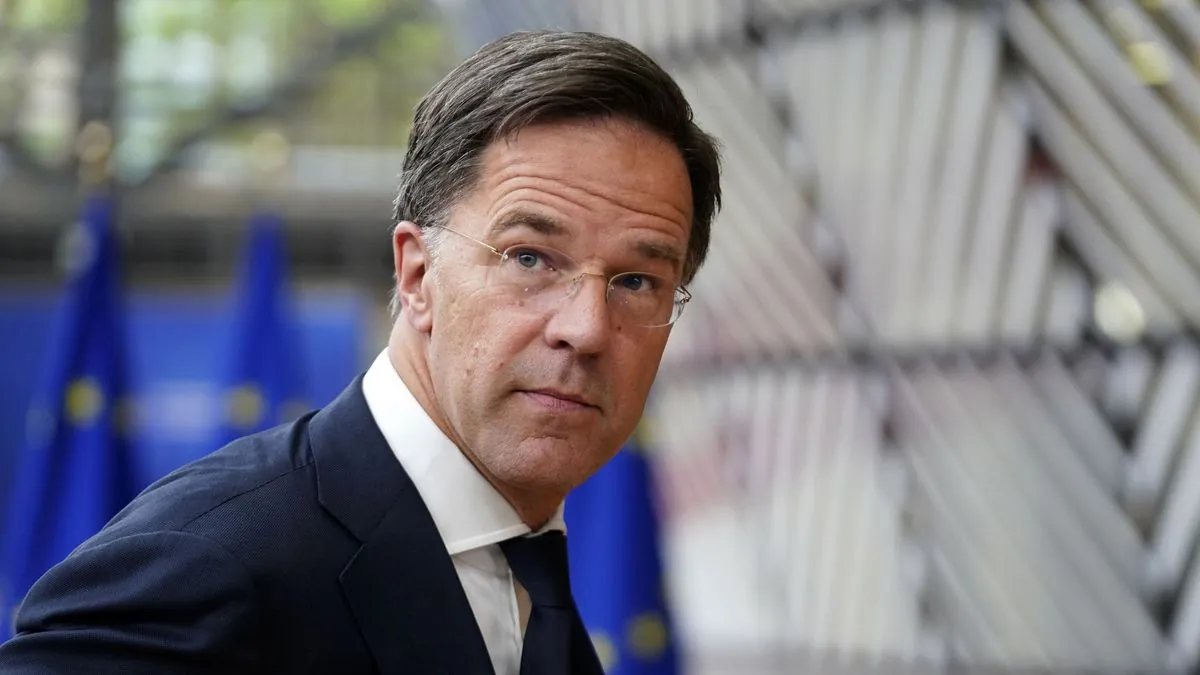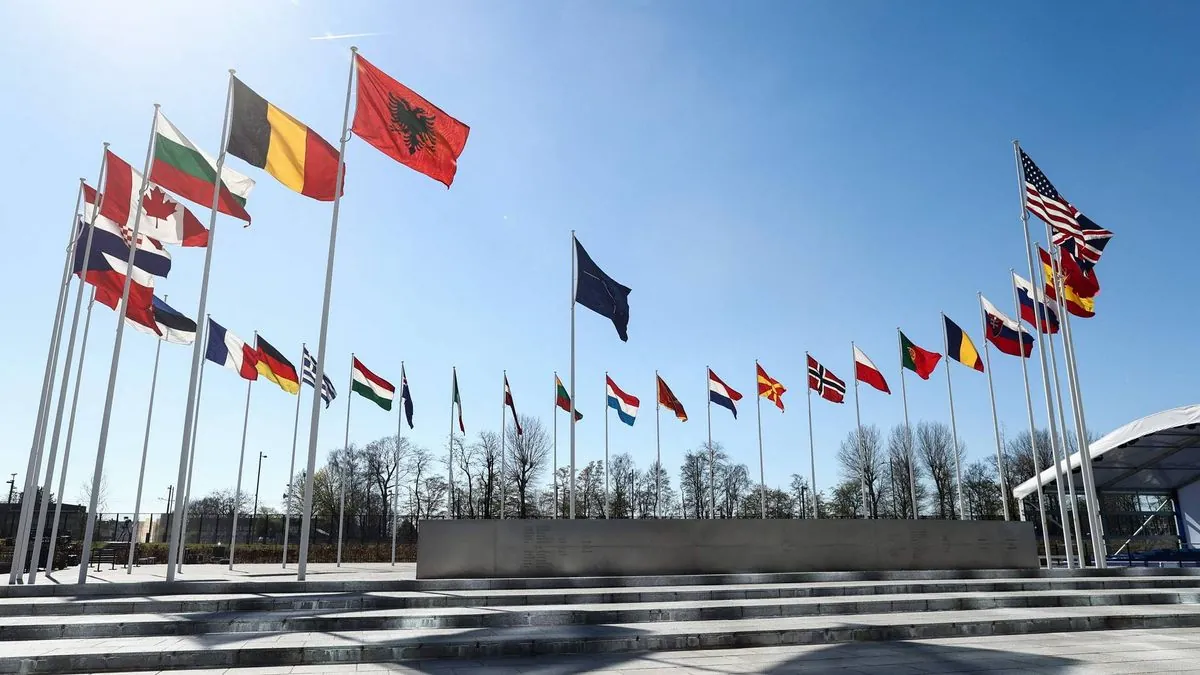Mark Rutte Takes Helm at NATO Amid Ukraine War and U.S. Election Uncertainty
Former Dutch PM Mark Rutte becomes NATO chief, facing challenges of Ukraine war support and potential U.S. policy shifts. His coalition-building skills seen as crucial for alliance unity.

On October 1, 2024, Mark Rutte, the former Dutch Prime Minister, assumed the role of NATO Secretary General, succeeding Jens Stoltenberg of Norway. This transition occurs at a critical juncture for the North Atlantic Treaty Organization, as it grapples with the ongoing conflict in Ukraine and anticipates a pivotal U.S. presidential election.
Rutte's appointment comes 75 years after NATO's founding in 1949, originally established to deter Soviet aggression in Western Europe. The alliance has since evolved, now comprising 32 member countries and facing complex global challenges. Rutte's extensive experience in coalition-building, honed during his record 14-year tenure as Dutch premier, is viewed as a valuable asset for his new role.
The new Secretary General is expected to maintain NATO's current priorities, which include:
- Sustaining support for Ukraine
- Encouraging increased defense spending among member states
- Ensuring continued U.S. engagement in European security
These objectives are set against the backdrop of Russia's 2022 invasion of Ukraine, which has reinvigorated NATO's central role in international affairs. The conflict prompted Sweden and Finland to abandon their long-standing non-alignment policies and join the alliance, seeking the protection of NATO's collective defense clause.

Rutte faces several challenges in his new position. The war in Ukraine has evolved into a protracted conflict, testing the resolve of NATO members. Additionally, the upcoming U.S. presidential election introduces uncertainty regarding future American support for the alliance and Ukraine.
The former Dutch leader is known for his staunch support of Ukraine and has previously urged European nations to bolster their defense capabilities. His approach aligns with NATO's recent efforts to strengthen its eastern flank and revise defense plans in response to perceived threats from Moscow.
NATO's renewed prominence has led to increased military cooperation among member states. The alliance has implemented various initiatives to enhance its capabilities, including:
- The NATO Response Force for rapid deployment
- The "Smart Defence" program encouraging collaborative capability development
- Cyber defense policies to address modern threats
- Air policing missions to protect member airspace
Rutte's role will involve forging consensus among the 32 allies, a task that requires diplomatic finesse. His experience in managing coalition governments is seen as advantageous, but some diplomats note potential challenges. These include Rutte's occasional blunt criticism of other European countries and his emphasis on fiscal prudence, which has caused friction with Eastern European members advocating for joint EU defense spending.
As NATO continues to adapt to evolving global security challenges, Rutte's leadership will be crucial in maintaining alliance unity and effectiveness. His tenure begins as the organization approaches its 75th anniversary, marking a new chapter in NATO's history of collective defense and international cooperation.
"NATO stands stronger and more united than ever. Under Mark Rutte's leadership, I am confident the alliance will continue to adapt and respond to the challenges of our time."
The transition in NATO leadership underscores the organization's commitment to addressing contemporary security issues while preserving its foundational principles of collective defense and political consultation. As Rutte takes the helm, the alliance remains focused on its core mission of safeguarding the freedom and security of its members through political and military means.


































